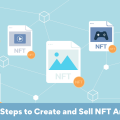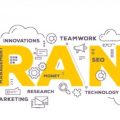
Customization in a white-label NFT marketplace refers to the ability of the marketplace owner or administrator to modify various aspects of the marketplace to reflect their brand and preferences.
In a white-label NFT marketplace, the platform is designed to be rebranded and customized by third-party users. This means that a company can purchase and modify the platform to fit its specific needs, including the design, layout, and features.
Customization may include changes to the color scheme, fonts, and logos used in the marketplace’s user interface. The marketplace owner may also be able to adjust the layout of the marketplace and add or remove certain features such as filters or search options.
Additionally, the owner may be able to set their own fees and commission rates for transactions that take place on the marketplace. They may also have the ability to set up their own rules for minting and selling NFTs, as well as managing user accounts and data.
Overall, customization in a white-label NFT marketplace provides flexibility and control for the marketplace owner, allowing them to create a unique user experience that reflects their brand and meets the needs of their audience.
- The NFT market is expected to continue growing in 2023 and beyond, as more artists, musicians, and other creators enter the space and create unique digital assets to sell as NFTs. This growth will likely lead to an increase in the number of white-label NFT marketplaces as businesses and individuals looking to create custom platforms to capitalize on this trend.
- According to a report by MarketsandMarkets, the global NFT market is expected to grow at a compound annual growth rate (CAGR) of 27.1% from 2021 to 2026. This growth is attributed to factors such as the increasing adoption of blockchain technology, the growing popularity of digital art and collectibles, and the rising demand for verified ownership and authenticity.
- As more companies enter the white-label NFT marketplace space, competition will likely increase, leading to more innovation and differentiation in features and user experience. Additionally, as the regulatory landscape around NFTs becomes clearer, it may lead to more mainstream adoption and acceptance of NFTs, further fueling the growth of white-label NFT marketplaces.
what is a customized white-label NFT marketplace?
A customized white-label NFT marketplace is a platform that has been designed to be rebranded and customized by third-party users to meet their specific needs and preferences.
A white-label NFT marketplace is a pre-built platform that can be purchased by businesses or individuals looking to create their own NFT marketplace with the help of an NFT marketplace development company. The platform provides the basic infrastructure and functionality for creating a marketplace, such as the ability to mint and sell NFTs, manage user accounts, and handle transactions.
Customization in a white-label NFT marketplace refers to the ability to modify various aspects of the platform to reflect a specific brand and preferences. This can include changes to the user interface, such as the color scheme and logo, as well as the ability to add or remove certain features such as filters, search options, and payment methods.
Customization can also include setting custom fees and commission rates for transactions, as well as creating rules and guidelines for minting and selling NFTs. Overall, a customized white-label NFT marketplace provides flexibility and control for the marketplace owner, allowing them to create a unique user experience that meets the needs of their audience.
What is the importance of customization in a white-label NFT marketplace?
Customization is an important aspect of a white-label NFT marketplace because it allows businesses and individuals to create a unique and personalized user experience for their audience.
Here are some key reasons why customization is important in a white-label NFT marketplace:
- Branding
- User experience
- Competitive advantage
- Flexibility
1. Branding
Branding is the process of creating a unique name, design, and image that identifies and differentiates a product, service, or business from its competitors. In the context of a white-label NFT marketplace, branding refers to the customization of the platform to reflect the brand identity of the business or individual that owns and operates the marketplace.
Creating a white-label NFT marketplace can include the use of a unique logo, color scheme, and typography that reflect the brand identity of the marketplace owner. This can help to create a cohesive and recognizable brand identity, which can lead to increased brand awareness and customer loyalty.
Branding can also include the creation of a unique value proposition and messaging that communicates the benefits of the marketplace to its target audience. By positioning the marketplace in a unique and compelling way, businesses and individuals can differentiate themselves from their competitors and attract customers who are interested in their specific offerings.
Overall, branding is an important aspect of a white-label NFT marketplace because it helps to create a unique and memorable identity for the platform. By developing a strong brand identity, businesses and individuals can differentiate themselves from competitors, build trust and credibility with customers, and create a positive user experience that leads to increased engagement and sales.
2. User experience
User experience (UX) refers to the overall experience that a user has when interacting with a product or service, including how easy it is to use, how enjoyable it is, and how well it meets the user’s needs and expectations. In the context of a white-label NFT marketplace, user experience refers to the design and functionality of the platform, as well as the quality of the services provided.
A good user experience is critical to the success of a white-label NFT marketplace because it can lead to increased engagement, customer satisfaction, and sales. Here are some key elements of a good user experience in a white-label NFT marketplace:
- User-friendly design: A user-friendly design is easy to navigate and visually appealing, with clear calls to action and intuitive navigation. This can include features such as a simple and streamlined checkout process, easy-to-find search options, and clear product descriptions.
- Speed and performance: A fast and responsive platform is important for providing a positive user experience, as users expect pages to load quickly and without delay. A slow or unresponsive platform can lead to frustration and user drop-off.
- Quality of service: Quality of service is important in a white-label NFT marketplace, as users expect a secure and reliable platform that can handle their transactions and provide support if needed. This can include features such as secure payment processing, clear refund policies, and responsive customer support.
- Personalization: Personalization is important in a white-label NFT marketplace, as it can help to create a more engaging and relevant user experience. This can include features such as personalized recommendations based on user activity, customized search results, and targeted marketing campaigns.
Overall, user experience is a critical aspect of a white-label NFT marketplace, as it can impact customer satisfaction, engagement, and sales. By focusing on user-friendly design, speed and performance, quality of service, and personalization, businesses and individuals can create a platform that meets the needs and expectations of their target audience and achieves their goals.
3. Competitive advantage
Competitive advantage refers to the unique attributes or capabilities of a business that set it apart from its competitors and gives it an edge in the market. In the context of a white-label NFT marketplace, competitive advantage can come from a variety of factors, such as:
- Customization: By customizing the platform to meet the specific needs and preferences of their target audience, businesses and individuals can create a unique user experience that sets them apart from competitors.
- Branding: A strong and recognizable brand identity can differentiate a white-label NFT marketplace from competitors, making it more memorable and appealing to customers.
- User experience: By providing a positive and engaging user experience, businesses and individuals can attract and retain customers, creating a loyal customer base and a competitive advantage over rivals.
- Features and functionality: Offering unique and innovative features and functionality that are not available on other white-label NFT marketplaces can give businesses and individuals a competitive advantage in the market.
- Strategic partnerships: Developing strategic partnerships with other businesses, artists, or influencers can help to increase visibility and attract new customers to the platform.
Overall, competitive advantage is important in a white-label NFT marketplace because it helps businesses and individuals to stand out from competitors and attract and retain customers. By focusing on factors such as customization, branding, user experience, features and functionality, and strategic partnerships, businesses and individuals can create a competitive edge in the market and achieve their goals.
4. Flexibility
Flexibility is an important characteristic in many areas of business and life, including white-label NFT marketplaces. In the context of a white-label NFT marketplace, flexibility refers to the platform’s ability to adapt and evolve over time to meet the changing needs of its users and the marketplace as a whole.
Here are some ways in which flexibility can benefit a white-label NFT marketplace:
- Scalability: Flexibility allows the platform to scale up or down as needed to accommodate changes in user demand or business growth.
- Customization: Flexibility enables businesses to customize the platform to their specific needs, such as adding new features or integrating with other platforms.
- Innovation: Flexibility fosters innovation by allowing the platform to adapt to emerging trends and technologies, such as new blockchain protocols or smart contract capabilities.
- User satisfaction: Flexibility enables the platform to respond to user feedback and make changes to improve the user experience over time.
- Competitiveness: Flexibility helps the platform stay competitive by allowing it to keep pace with changes in the NFT marketplace and other NFT platforms.
Overall, flexibility is an important characteristic of a white-label NFT marketplace that can help businesses stay agile, competitive, and responsive to the needs of their users and the broader market.
Conclusion
In conclusion, customization is a critical aspect of a white label NFT marketplace. It enables businesses to differentiate themselves from the competition, build brand identity, and improve the user experience. Customization also provides flexibility, allowing the platform to adapt to changes in user needs and market trends. A customizable platform can also foster innovation and generate revenue by offering premium customization options or charging fees for certain features. Ultimately, a white label NFT marketplace that offers customization options can help businesses stay agile and competitive in the rapidly evolving NFT market.
Author BIO
Rohan Singh is a Chief Executive Officer at SemiDot Infotech, Top rated multi-award-winning blockchain development company providing a full suite of services and solutions to small, medium, and big enterprises, product companies & new-age start-ups.
He has extensive experience working for multinational companies and knows what it takes to take a company to the next level. He has a master’s degree in computer science. Rohan finds covering the tech world to be an exciting and engaging experience as each day brings new and groundbreaking technologies to explore and write about.






